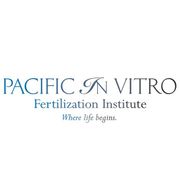4 FAQ About In Vitro Fertilization

Whether you’re an LGBT couple who wants to start your family or a heterosexual couple looking for infertility treatment options, you may unknowingly be good candidates for in vitro fertilization. Learn more about the IVF process with these commonly asked questions to help you decide whether it’s the right option for you and your partner.
Common Questions About IVF
What exactly is in vitro fertilization?
In vitro fertilization involves extracting eggs from a woman’s ovaries and combining them with sperm outside her body. If the sperm successfully fertilizes an egg, it’s implanted into the uterus.
 It’s an effective way to make conception possible for LGBT couples who cannot biologically produce their own children together and heterosexual couples who struggle with fertility. If necessary, an egg or sperm from a third party can be introduced to the process.
It’s an effective way to make conception possible for LGBT couples who cannot biologically produce their own children together and heterosexual couples who struggle with fertility. If necessary, an egg or sperm from a third party can be introduced to the process.
Are there different methods for in vitro fertilization?
One of the most common in vitro fertility treatments is intracytoplasmic sperm injection, otherwise known as ICSI. Fertility doctors focus on mixing the healthiest eggs with the healthiest sperm to create the most stable embryos.
Pre-implantation genetic screening, or PGS, allows the doctor to check whether an embryo has developed any mutations or chromosomal abnormalities before placing it inside a uterus. There’s also the option of freezing embryos to be implanted later.
Who qualifies for it?
IVF is most successful in women who are about 35 years of age or younger, as older eggs are harder to fertilize and less likely to produce viable embryos. However, if they don’t have frozen embryos for future pregnancies, a doctor can still try to find usable eggs.
Otherwise, a fertility clinic may suggest using younger and healthier eggs through a donor agency. Men and women with serious diseases, medical conditions, or high-risk careers that could affect their fertility can all benefit from using in vitro methods.
Will it result in multiple babies at once?
Before, every embryo was placed into the uterus because there was never a guarantee that they would all make it through a successful pregnancy, so multiple births were common. Now, fertility doctors can better predict which embryos will be stable enough for growth, so they can focus on implanting one healthy embryo.
To learn more about IVF and determine whether it’s a good option for you and your partner, contact Pacific In Vitro Fertilization Institute in Honolulu, HI. As the first fertility clinic of its kind in Hawaii, they’ve provided infertility treatments for their patients for over 34 years. They’ll take your unique circumstances, preferences, and future plans into account as they help you decide exactly how and when to undergo in vitro fertilization treatment. To find out more about their services, call them today at (808) 946-2226 or explore their website.
About the Business
(3 reviews)
Have a question? Ask the experts!
Send your question

